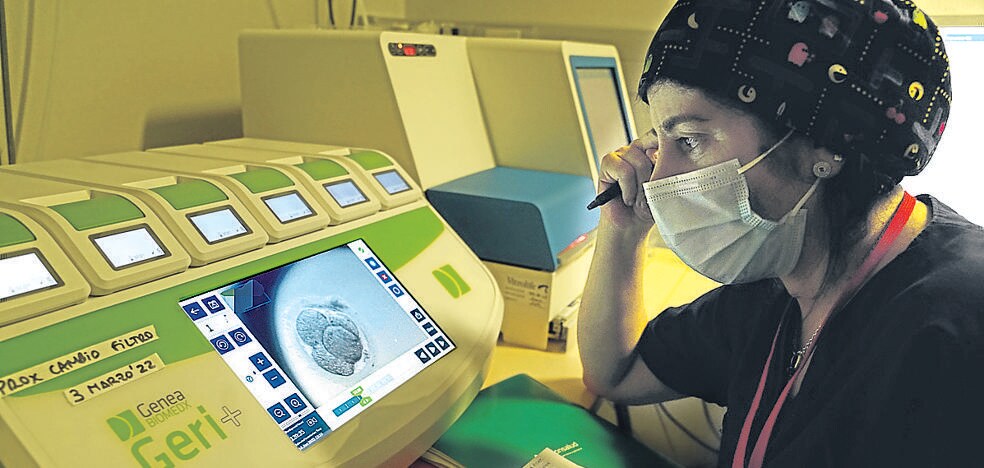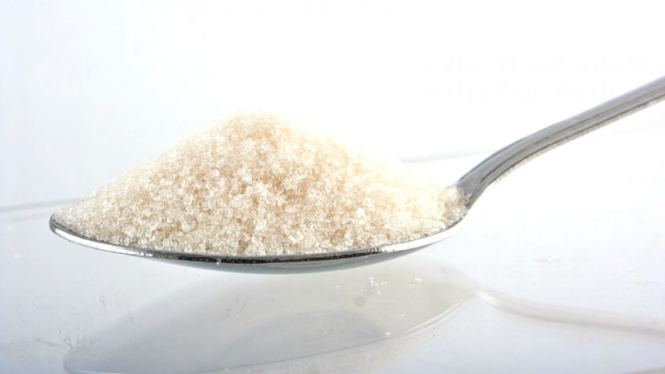The couple came from Morocco and was already 50 years old. They had had a son who lost his life at 18 in a traffic accident and that drama opened an abyss that the marriage was unable to fill. They traveled to Barcelona, to the Dexeus Mujer clinic, and once there, having seen the possibilities and faced with the severe condition that her age implied, they accepted an egg donation, a complicated treatment to carry out in their country, also for reasons religious. Iñaki González Foruria, a specialist in Reproductive medicine at the Catalan center, remembers as if it were yesterday the day his team carried out the transfer, the same day that his son died. “A chance of life”. She got pregnant.

—
Her story is added to that of many other women, authentic stories of overcoming. Like that of that French woman with endometriosis who went through multiple in vitro fertilization treatments until she fulfilled her dream and had a child, but when she later wanted to give her a brother, she did not stop fighting so that, once again in Spain, she could cheat fate and conceive. “The fact of resorting to egg donation to give your child a brother seems to me a beautiful gesture, a process that goes beyond the physical and that emotionally demands a lot,” González slides. Or that of that couple of Italian lesbians, who after she got pregnant one of them returned after a while to transfer the embryos that had been frozen to their partner. “Another literal brother, but in the other mother’s womb.”
According to data from the Spanish Fertility Society, 12% of assisted pregnancies carried out here are destined for foreign patients, which places our country among the main reproductive tourism destinations in the world. Its president, Luis Martínez Navarro, attributes this trend to two fundamental reasons: the legal system (assisted reproduction is regulated here with its own law – Law 14/2006 – which allows all treatments except uterus surrogacy) and the quality of reproductive medicine. “It must be understood that if a patient cannot access a certain technique because her country does not allow it, she will go to another with methods that allow the process to be successfully completed.”
«The delay of motherhood is a rising trend in the West -remember in Dexeus- and, unlike other European countries, Spanish law allows access to these techniques to women without a partner, heterosexual and lesbian marriages, or couples of done”. Also as a method of family planning (freezing eggs to postpone maternity, “which has increased the demand for these treatments.” In the case of the Catalan clinic, foreign patients already represent 20% of all interventions.
THE PHRASES
.Dexeus Woman
Iñaki González Foruria
«Some think that by paying they can get everything, that because it is Spain, perhaps they will have it easier. It is not like that, this is not a supermarket”
—
–
Chiron Health Ginemed Bilbao
Marina Gonzalez Weaver
«Here there is a culture of donating, a sensitivity that there is not in other places. And this is the same if we talk about organs than about eggs and sperm»
—
–
Spanish Fertility Society
Luis Martinez Navarro
“Artificial insemination with donor sperm costs about 1,000 euros. On the other hand, treatment with donated oocytes is more expensive, between 5,000 and 7,000»
—
—
—
In more than half of the countries in Europe, the authorities prohibit the use of assisted reproduction by lesbians or single women. In France, the National Assembly did not give its authorization so that these two groups could resort to these treatments until last June, which for many years has made that country the first niche of foreign patients. But there is more. «In England or Portugal anonymous donation is not allowed -here they are all by law-, in Italy the number of embryos or the possibility of saving them for the future is restricted, and in countries like Germany or Austria it is not legal to resort to donation. egg donation”, lists Marina González Tejedor, head of the Assisted Reproduction unit at QuirónSalud Ginemed Bilbao.
The reasons for trying to consummate the pregnancy in Spain also include the long waiting lists, the prices that are considered – starting one of these treatments often requires taking out large loans to make a dream come true – and a wide range, especially in those places where proximity to borders (case of Euskadi or Galicia with respect to France and Portugal) or tourism (Costa del Sol, Alicante, Valencia and Madrid) act as poles of attraction. Only in Catalonia there are more than fifty clinics.
The consolidation of the system is not the flower of a day, in fact there are countries where it is not enough for the legislation to be softened. Italy is a good example. Their results have nothing to do with the Spanish, because they have been working in this field for a short time, there are fewer donors and they do not have the appropriate technique. “Here the circuits are consolidated, the logistics work well, as does the word of mouth between donors -explains González Foruria-. Those who come from abroad know that the search for a suitable donor can last six months, while elsewhere they will spend years waiting. And people who have passed 40 are not here to waste time.
As far as physical traits and genetic background are concerned, Spanish law is very clear: the greatest possible compatibility must be achieved, which includes looking for a donor, for example, a brunette with brown eyes for a recipient who responds to the same profile; to testing the donor for genetic diseases, for example, so that she is not a carrier of the same mutations as the man. “Of course, in no case can we succumb to the requests of the patients. ‘we are dark, but we want the girl blonde’, because this is not a supermarket -González Foruria adds-. And yes, there are some to whom you have to explain it, fortunately fewer. They think that by paying you can get everything, or that in Spain we are going to turn a blind eye, that this is anything goes. It does not take them long to verify that this is not the case, that if things work here it is for a reason.
RETAIL
-
14/2006
The Law on Assisted Reproduction Techniques in force in Spain, an advanced system that allows all treatments to be addressed except for uterus surrogacy. -
14.521
women delivered eggs in Spain in 2019, the latest data available to the SEF. Sperm donors are not measured in the records of the Ministry of Health. -
-196
are the degrees at which donated sperm and eggs are frozen in tanks for storage.
–
—
Spain is part of the small club of countries that shows very high rates of assisted reproduction among non-nationals, a condition that it shares with Denmark (more than half of inseminations with donors are made to foreigners, according to the Health and Medicines Authority of that country). country) or the Czech Republic (86% of women who received eggs were from outside the country). The figures here are not so high percentage-wise, recalls Martínez Navarro, “surely because the age of motherhood has reached historical maximums.”
different sensitivities
At Ginemed Bilbao, a light in the lobby reports the number of evolutionary pregnancies achieved to date. This past Friday there were 4,310. Clinic sources point out that 78% of the patients treated in 2021 were Spanish, 15% Portuguese (the company has a center in the neighboring country) and 7% foreigners, “which is not bad at all in the case of a year with restricted mobility. In Dexeus Mujer, an average of 20% of the 3,000 treatments carried out last year on foreigners move, which ranges from 38% of women who resorted to egg donation to 8.2% of those who decided to preserve fertility, either for medical reasons or not.
Beyond the women who travel to Spain in search of conceiving by assisted methods, genetic material, their own or from gamete banks (oocytes and sperm), is also exported. Sometimes even embryos, ovules already fertilized. Here too there are differences. While in the United Kingdom it is not customary to donate semen, countries like Italy turn to Spain or Denmark to guarantee their supply. «Without a doubt it is a sensitive subject that lends itself to different sensitivities, in the end it is something cultural. In Spain we have always been characterized by being more altruistic. We donate, we are used to doing it and it is also well seen socially. And this is the same when we talk about organ transplants, that of blood transfusions and also, why not, of sperm or ovules».
–


